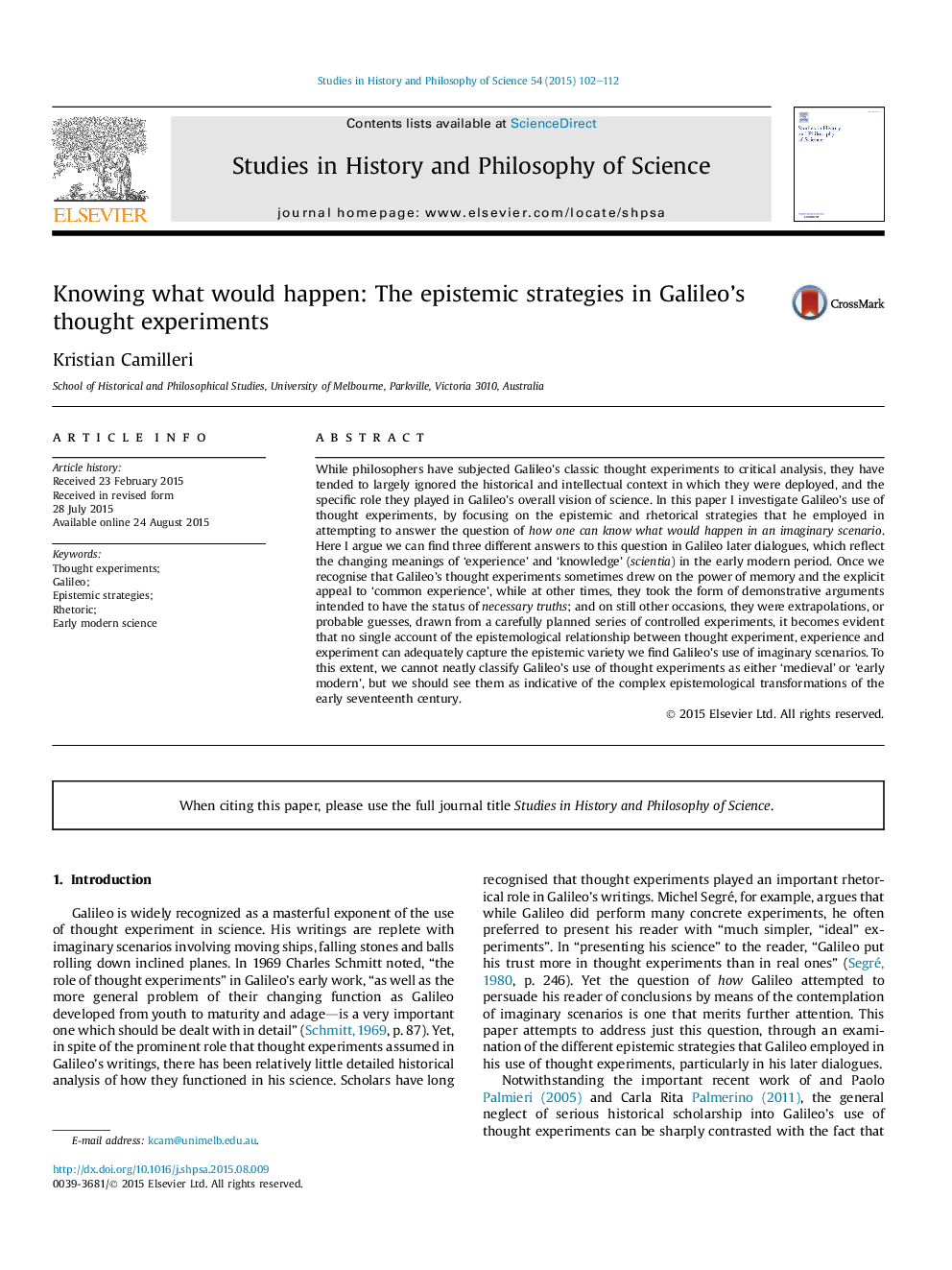| کد مقاله | کد نشریه | سال انتشار | مقاله انگلیسی | نسخه تمام متن |
|---|---|---|---|---|
| 1160217 | 1490328 | 2015 | 11 صفحه PDF | دانلود رایگان |
• I identify three different epistemic strategies in Galileo's thought experiments.
• I provide an overview of the historiography of Galileo's thought experiments.
• Galileo draws on the medieval and early modern epistemological traditions.
• Galileo appeals to the demonstrative ideal of science in some imaginary scenarios.
• Galileo sometimes appeals to common experience and extrapolation from experiment.
While philosophers have subjected Galileo's classic thought experiments to critical analysis, they have tended to largely ignored the historical and intellectual context in which they were deployed, and the specific role they played in Galileo's overall vision of science. In this paper I investigate Galileo's use of thought experiments, by focusing on the epistemic and rhetorical strategies that he employed in attempting to answer the question of how one can know what would happen in an imaginary scenario. Here I argue we can find three different answers to this question in Galileo later dialogues, which reflect the changing meanings of ‘experience’ and ‘knowledge’ (scientia) in the early modern period. Once we recognise that Galileo's thought experiments sometimes drew on the power of memory and the explicit appeal to ‘common experience’, while at other times, they took the form of demonstrative arguments intended to have the status of necessary truths; and on still other occasions, they were extrapolations, or probable guesses, drawn from a carefully planned series of controlled experiments, it becomes evident that no single account of the epistemological relationship between thought experiment, experience and experiment can adequately capture the epistemic variety we find Galileo's use of imaginary scenarios. To this extent, we cannot neatly classify Galileo's use of thought experiments as either ‘medieval’ or ‘early modern’, but we should see them as indicative of the complex epistemological transformations of the early seventeenth century.
Journal: Studies in History and Philosophy of Science Part A - Volume 54, December 2015, Pages 102–112
